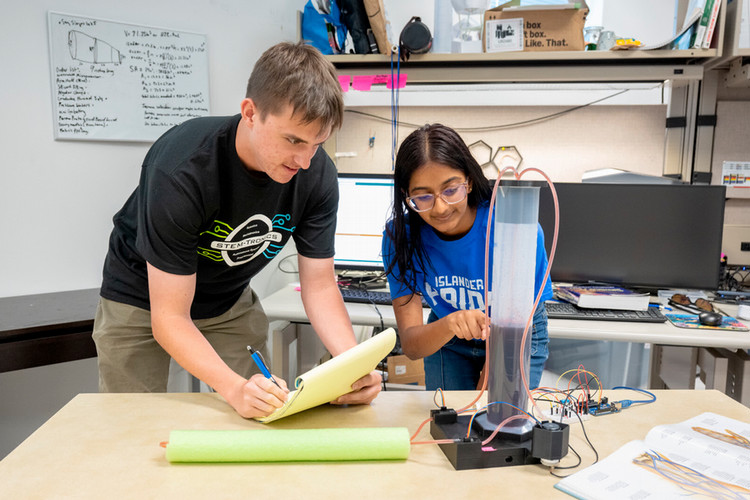HRI Partners with TX Comptroller to Study Link Between Matagorda Bay Health and Endangered Turtles
CORPUS CHRISTI, Texas – Researchers with the Harte Research Institute (HRI) for Gulf of Mexico Studies at Texas A&M University-Corpus Christi are partnering with the Texas Comptroller of Public Accounts’ Natural Resources Program to launch a cutting-edge $2.7 million project to assess the health of Matagorda Bay. By studying the bay on the ecosystem level, scientists will be able to better determine how issues like flooding and sea level rise are impacting important species, including endangered sea turtles and shorebirds.
“We’re thrilled to be partnering with the Texas Comptroller of Public Accounts’ Natural Resources Program on this project that will provide key science to better manage and conserve Texas bays and estuaries, said Dr. Greg Stunz, HRI Endowed Chair for Fisheries and Ocean Health and Director for Center for Sportfish Science and Conservation . “Sea turtles and endangered bird populations in Texas’ estuaries are a perfect example of where robust science on the estuarine ecosystem that supports these endangered species can greatly enhance recovery and long-term sustainability of their populations.”
To address these needs, HRI assembled an expert team consisting of world-class sea turtle and avian biologists and marine ecologists to meet the needs of this research effort. The group will conduct a diverse scope of work that draws on HRI’s expertise in interdisciplinary research, including habitat modeling and mapping, tagging and tracking species to study their migration and movement, biological sampling, bird surveys, food web analysis, water quality, and other specialties.
This West Matagorda Bay project is unique in that it takes an ecosystem-based management approach, examining the role a multitude of species play in an ecosystem along with their complex interactions with food webs, habitat, and water quality. While managing species on an individual basis can provide valuable biological information, to really understand environmental health, it’s important to gain an in-depth understanding of the fundamental underlying ecological processes that support a resilient ecosystem. This could not be more relevant than when managing endangered species – knowing their biology is important, but understanding of the ecosystem that supports these fragile populations is paramount.
“Data generated from an ecosystem-based approach like this study will be crucial to developing effective restoration and conservation strategies, and can be used to identify and prioritize areas for long-term protection of sea turtles and many other species,” said Stunz.
The partnership with the Texas Comptroller of Public Accounts’ Natural Resources Program will develop comprehensive economic and ecological information and tools communities can use to sustain economic development while protecting natural resources and species. The Natural Resources Program will provide economic data and analysis to complement the ecological research. HRI and its team of researchers will study habitats used by a suite of imperiled, threatened and endangered sea turtle and bird species as well as the potential impacts of evolving environmental factors.
Matagorda Bay supports numerous industries important to the Texas economy, including commercial and recreational fishing, agriculture and tourism, while serving as a rich resource for fish and wildlife. Despite its economic value, little research has been conducted on the distribution and health of the bay's many habitats and their importance to the ecosystem.
"Matagorda Bay directly supports a number of significant industries along the Texas coast, and continued economic development in the surrounding regions will be crucial to the future of our state," said Glenn Hegar, Texas Comptroller. "Now's the time to safeguard our state's economic future by gathering valuable scientific research to inform active voluntary conservation efforts and support ongoing economic growth."
The research team, led by Stunz, includes co-principal investigators Dr. Jim Gibeaut, HRI’s Endowed Chair for Coastal and Marine Geospatial Sciences; Dr. Jennifer Pollack, HRI Chair for Coastal Conservation and Restoration; Dr. Mike Wetz, HRI Chair for Coastal Ecosystem Processes; Dr. Pamela Plotkin of Texas A&M University and Texas Sea Grant; Drs. Jay R. Rooker and R.J. David Wells of Texas A&M University at Galveston; and Edmund L. Oborny Jr. of BIO-WEST, Inc.

